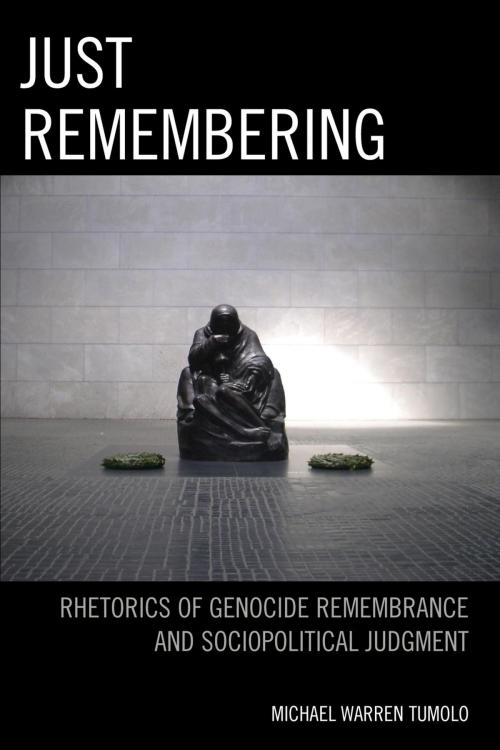Just Remembering
Rhetorics of Genocide Remembrance and Sociopolitical Judgment
Nonfiction, Reference & Language, Language Arts, Public Speaking, Rhetoric, Communication, Social & Cultural Studies, Social Science| Author: | Michael Warren Tumolo | ISBN: | 9781611478136 |
| Publisher: | Fairleigh Dickinson University Press | Publication: | October 29, 2015 |
| Imprint: | Fairleigh Dickinson University Press | Language: | English |
| Author: | Michael Warren Tumolo |
| ISBN: | 9781611478136 |
| Publisher: | Fairleigh Dickinson University Press |
| Publication: | October 29, 2015 |
| Imprint: | Fairleigh Dickinson University Press |
| Language: | English |
Just Remembering: Rhetorics of Genocide Remembrance**and Sociopolitical Judgment analyzes a set of influential discourses of genocide remembrance to explain how public memory discourses inform sociopolitical judgment. Within this explanatory context, Just Remembering additionally asks how we might remember pasts marked by genocidal violence in ways that commit ourselves to a deeper understanding and more humane practice of justice.
The chapters are thematically organized, focusing on specific sites of memory to highlight symbolic inducements of memorial discourses. Chapter 2 analyzes U.S. public discourse concerning an “Armenian Genocide” resolution to elucidate the role of politics in the production, dissemination, and maintenance of memory. Chapter 3 offers a historical account of the shift in public discourse concerning the capture of the Nazi war criminal Adolf Eichmann, demonstrating how and with what consequences the discourses shifted from a focus on law to a focus on morality. Chapter 4 expands this work by analyzing how competing narrative accounts of historical figures and events (Eichmann and the Holocaust) influence what we remember, how we remember, and the ends to which we apply such memories. Chapter 5 analyzes the Report of the President’s Commission on the Holocaust that produced the United States’ official remembrance of the Holocaust. This chapter argues that the Commission Report provides an exemplary explanation for why we should remember and provokes a complex understanding of what we are to remember. Chapter 6 concludes the book by focusing on the productive capacity of the humanitarian aims of U.S. Holocaust remembrance.
Just Remembering: Rhetorics of Genocide Remembrance**and Sociopolitical Judgment analyzes a set of influential discourses of genocide remembrance to explain how public memory discourses inform sociopolitical judgment. Within this explanatory context, Just Remembering additionally asks how we might remember pasts marked by genocidal violence in ways that commit ourselves to a deeper understanding and more humane practice of justice.
The chapters are thematically organized, focusing on specific sites of memory to highlight symbolic inducements of memorial discourses. Chapter 2 analyzes U.S. public discourse concerning an “Armenian Genocide” resolution to elucidate the role of politics in the production, dissemination, and maintenance of memory. Chapter 3 offers a historical account of the shift in public discourse concerning the capture of the Nazi war criminal Adolf Eichmann, demonstrating how and with what consequences the discourses shifted from a focus on law to a focus on morality. Chapter 4 expands this work by analyzing how competing narrative accounts of historical figures and events (Eichmann and the Holocaust) influence what we remember, how we remember, and the ends to which we apply such memories. Chapter 5 analyzes the Report of the President’s Commission on the Holocaust that produced the United States’ official remembrance of the Holocaust. This chapter argues that the Commission Report provides an exemplary explanation for why we should remember and provokes a complex understanding of what we are to remember. Chapter 6 concludes the book by focusing on the productive capacity of the humanitarian aims of U.S. Holocaust remembrance.















